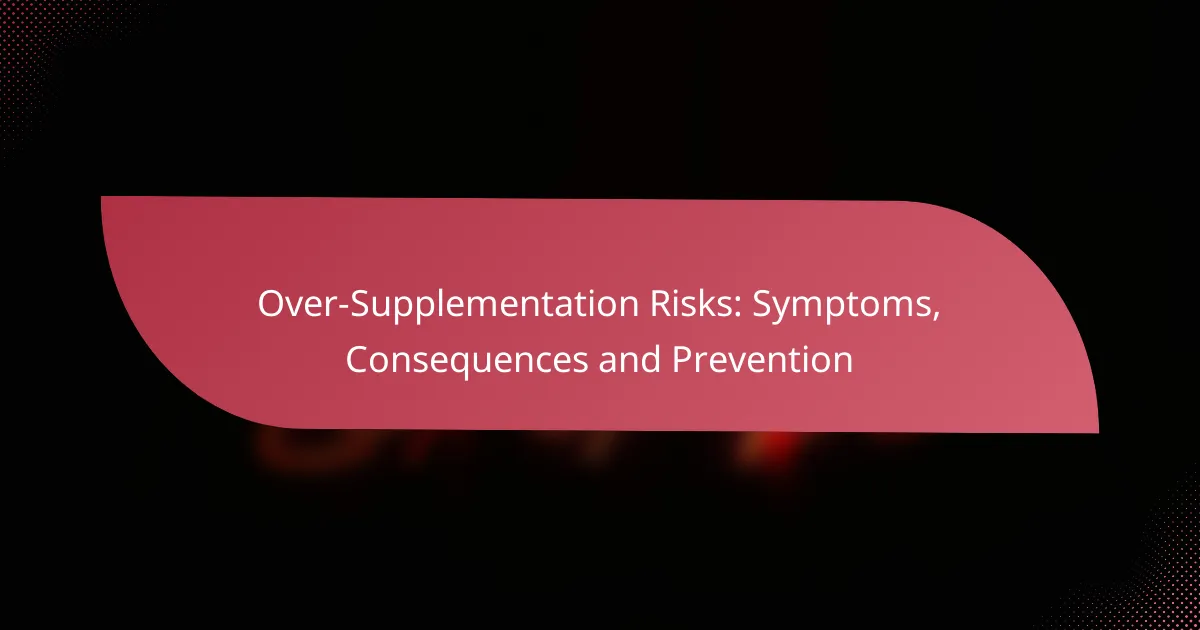What are the potential risks of nutritional supplements?
Nutritional supplements can pose various risks, including adverse reactions, interactions with medications, and contamination issues. Understanding these risks is crucial for safe usage and informed decision-making.
Adverse reactions
Adverse reactions to nutritional supplements can range from mild side effects to severe health issues. Common reactions include gastrointestinal discomfort, allergic responses, and headaches. Individuals should monitor their bodies for any unusual symptoms after starting a new supplement.
It’s advisable to consult a healthcare provider before beginning any supplement, especially for those with pre-existing conditions or sensitivities.
Interactions with medications
Nutritional supplements can interact with prescription and over-the-counter medications, potentially altering their effectiveness or causing harmful side effects. For instance, vitamin K can interfere with blood thinners like warfarin, affecting blood clotting.
Always inform your healthcare provider about any supplements you are taking to avoid dangerous interactions.
Overdosage concerns
Taking nutritional supplements in excessive amounts can lead to toxicity and serious health complications. Fat-soluble vitamins, such as A, D, E, and K, can accumulate in the body and cause adverse effects when consumed in high doses.
It’s important to adhere to recommended dosages and consult with a healthcare professional if unsure about the appropriate amount.
Contamination issues
Some nutritional supplements may be contaminated with harmful substances, including heavy metals, pesticides, or unlisted ingredients. This risk is particularly prevalent in products that are not rigorously tested or regulated.
Choosing supplements from reputable brands that adhere to quality standards can help mitigate contamination risks.
Quality variability
The quality of nutritional supplements can vary significantly between brands and products. Factors such as sourcing, manufacturing processes, and ingredient purity can affect the overall efficacy and safety of a supplement.
Look for third-party testing certifications and reviews to ensure the quality of the supplements you choose.
How can consumers mitigate risks associated with supplements?
Consumers can mitigate risks associated with supplements by being informed and cautious in their choices. This involves consulting healthcare professionals, researching product labels, and selecting reputable brands to ensure safety and efficacy.
Consult healthcare professionals
Before starting any supplement, it’s crucial to consult with healthcare professionals such as doctors or registered dietitians. They can provide personalized advice based on individual health conditions, medications, and nutritional needs.
Healthcare providers can also help identify potential interactions between supplements and prescription medications, reducing the risk of adverse effects. Regular check-ins can ensure that the supplement regimen remains appropriate over time.
Research product labels
Thoroughly examining product labels is essential for understanding what you are consuming. Look for information on active ingredients, dosage recommendations, and any potential allergens.
Pay attention to third-party testing certifications, which indicate that the product has been independently verified for quality and purity. Avoid supplements with vague ingredient lists or those that make exaggerated claims about their benefits.
Choose reputable brands
Selecting supplements from reputable brands can significantly reduce risks. Look for companies that adhere to good manufacturing practices (GMP) and have a history of transparency and quality control.
Research customer reviews and seek recommendations from trusted sources. Brands that provide clear information about their sourcing, manufacturing processes, and testing are more likely to offer safe and effective products.
What are the common side effects of popular supplements?
Common side effects of popular supplements can vary widely depending on the type and dosage. Users may experience anything from mild digestive issues to more severe reactions, making it essential to understand the specific risks associated with each supplement.
Vitamin D side effects
Vitamin D is crucial for bone health, but excessive intake can lead to toxicity. Symptoms may include nausea, vomiting, weakness, and serious complications like kidney damage. It’s advisable to keep daily doses within the recommended range of 600 to 800 IU unless otherwise directed by a healthcare provider.
Individuals should monitor their vitamin D levels through blood tests, especially if they are taking high-dose supplements. Always consult a healthcare professional before starting or adjusting your vitamin D intake.
Iron supplement risks
Iron supplements are often used to combat anemia, but they can cause gastrointestinal issues such as constipation, diarrhea, and stomach cramps. Overconsumption can lead to iron overload, which may damage organs and lead to serious health problems.
It’s important to take iron supplements only when prescribed and to follow the recommended dosage. If you experience severe side effects, seek medical advice promptly.
Herbal supplement interactions
Herbal supplements can interact with prescription medications, leading to reduced effectiveness or increased side effects. For example, St. John’s Wort can diminish the effects of antidepressants and birth control pills, while ginkgo biloba may increase bleeding risk when taken with blood thinners.
Always disclose all supplements to your healthcare provider to avoid harmful interactions. Consider consulting a professional before starting any new herbal regimen, especially if you are on medication.
How do regulations impact supplement safety?
Regulations significantly influence the safety of nutritional supplements by establishing guidelines for manufacturing, labeling, and marketing. However, the lack of stringent oversight can lead to inconsistencies in product quality and safety.
FDA oversight limitations
The U.S. Food and Drug Administration (FDA) does not pre-approve dietary supplements before they reach the market. This means that manufacturers are responsible for ensuring their products are safe and accurately labeled, which can lead to variability in quality.
Since the FDA only intervenes after a product is on the market, harmful supplements may remain available for extended periods. Consumers should be cautious and research products thoroughly before use.
Labeling requirements
Labeling requirements for nutritional supplements are designed to provide consumers with essential information, but they are not always comprehensive. Labels must include a list of ingredients, but they may not always disclose potential allergens or the exact amounts of active ingredients.
It’s crucial for consumers to read labels carefully and look for third-party testing certifications, which can indicate a higher level of quality assurance.
Consumer protection laws
Consumer protection laws vary by country and can impact how supplements are marketed and sold. In the U.S., the Federal Trade Commission (FTC) regulates advertising claims, but enforcement can be inconsistent.
Consumers should be aware of their rights and report misleading claims to relevant authorities. Understanding local regulations can help consumers make informed choices and avoid unsafe products.
What should consumers look for in supplement quality?
Consumers should prioritize third-party testing, ingredient sourcing, and manufacturing practices when evaluating supplement quality. These factors help ensure that products are safe, effective, and free from harmful contaminants.
Third-party testing
Third-party testing involves independent organizations evaluating supplements for quality and purity. Look for certifications from reputable entities like NSF International or US Pharmacopeia, which indicate that the product has been tested for contaminants and accurately labeled. This step can help consumers avoid products that may contain harmful substances or inaccurate ingredient amounts.
When checking for third-party testing, consider the frequency of testing and whether the results are publicly available. Transparency in testing results can provide additional assurance of a supplement’s quality.
Ingredient sourcing
Ingredient sourcing refers to where and how the raw materials for supplements are obtained. High-quality supplements often use ingredients from reputable suppliers who adhere to strict quality standards. Look for products that specify the origin of their ingredients, as this can impact their effectiveness and safety.
Be cautious of supplements that do not disclose their ingredient sources or use vague terms like “natural.” Researching the sourcing practices of brands can help consumers make informed choices and avoid potentially harmful additives.
Manufacturing practices
Manufacturing practices encompass the processes and standards used to produce supplements. Look for products made in facilities that comply with Good Manufacturing Practices (GMP), which ensure consistency and safety. GMP-certified facilities are regularly inspected and must follow strict protocols to minimize contamination and errors.
Additionally, consider brands that provide information about their manufacturing processes, such as batch testing and quality control measures. This level of transparency can indicate a commitment to producing high-quality supplements.
What are the long-term effects of supplement use?
The long-term effects of nutritional supplement use can vary significantly based on the type of supplement, dosage, and individual health conditions. While some supplements may provide benefits, others can lead to adverse health outcomes, particularly when taken in excess or without medical guidance.
Chronic health conditions
Long-term use of certain nutritional supplements may exacerbate chronic health conditions or lead to new health issues. For instance, excessive intake of vitamin A can result in liver damage, while high doses of calcium might increase the risk of kidney stones.
Individuals with pre-existing conditions should consult healthcare professionals before starting any supplement regimen. Monitoring is crucial, as some supplements can interact negatively with medications or worsen health issues, such as cardiovascular diseases or diabetes.
It’s essential to evaluate the necessity of supplements based on dietary intake and specific health needs. Regular blood tests can help determine nutrient deficiencies, guiding more informed decisions about supplementation.






